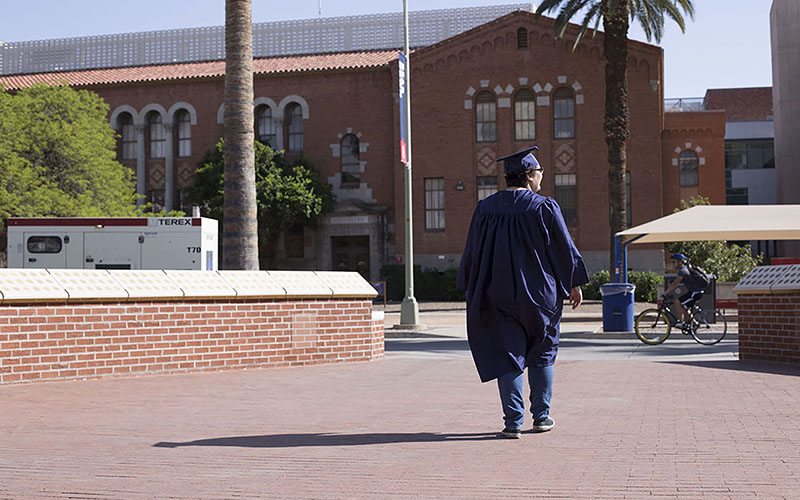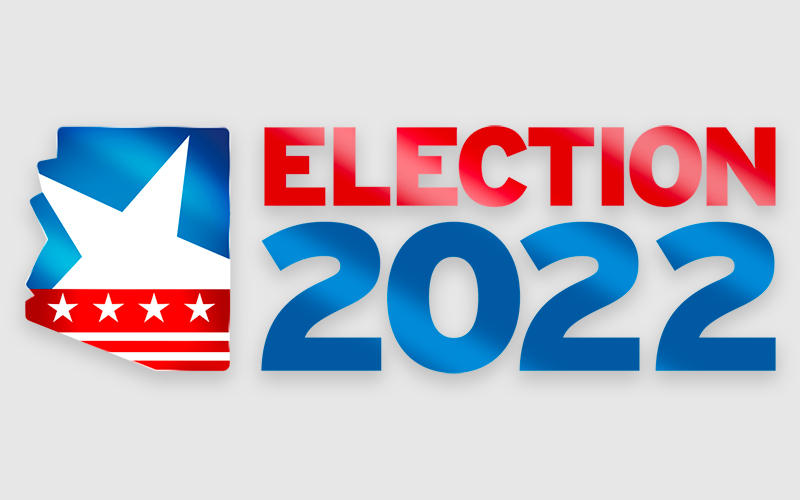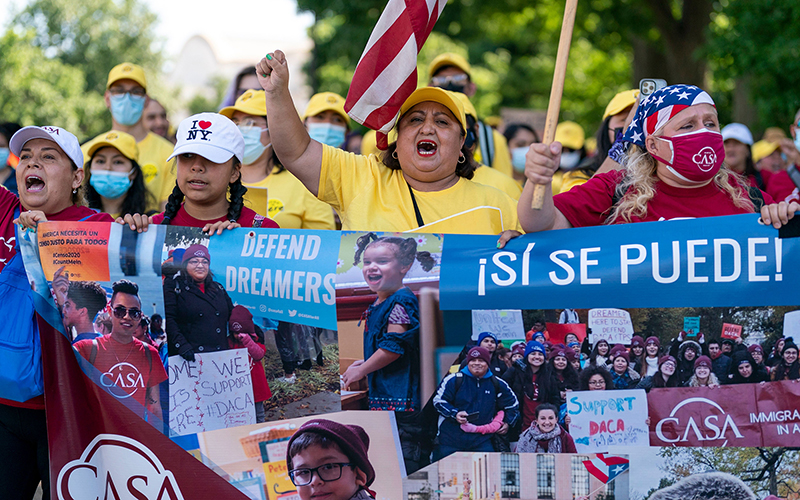
Arizona voters overwhelmingly approved a ballot measure in 2006 that denied in-state tuition – which could save a student thousands of dollars a year – to undocumented residents. Proposition 308 on this fall’s ballot would reverse that, and supporters are confident the state has changed and the law will, too. (File photo by Emily L. Mahoney/Cronkite News)
WASHINGTON – Undocumented Arizona residents are able to attend one of the state universities and, even though they have to pay 50% more for the privilege, state Sen. Michelle Ugenti-Rita thinks they can probably get financial aid to help.
“So, like, what’s the problem?” asked the Scottsdale Republican, who sees no need for a ballot initiative that would let undocumented state residents pay in-state tuition.
The problem, said Arizona Education Association President Marisol Garcia, is that those students “are brilliant and we want to give them a shot. It’s disappointing to know that there would be anyone against this.”
“This” is Proposition 308, which would make undocumented students eligible for in-state tuition if they have lived in the state for at least two years and got their high school diploma in the state.
If approved, the measure would reverse a 2006 ballot measure, Proposition 300, that prohibited undocumented Arizona residents from being classified as in-state students for the purpose of getting in-state tuition. That measure passed by an overwhelming majority of 72-28 percent.
But things may have changed since then: An OH Predictive Insights poll from early September found that 53% of likely Arizona voters said they support Proposition 308, with 33% opposed and the rest undecided.
“We have a tremendous number of people moving to this area, from other places, and with that brings a different perspective,” said the Rev. Hunter Reppin, rector at the Church of Epiphany Tempe, in explaining the apparent shift.
Arizona is currently one of three states, along with Georgia and Indiana, that denies full in-state tuition to undocumented state residents. At Arizona’s three public universities, out-of-state tuition rates are two to three times what in-state students pay, a difference that can mean tens of thousands of dollars per year in added tuition.
But the Arizona Board of Regents voted in 2019 to cut undocumented students a break. It approved a policy that said any student who lived and attended high school in Arizona for at least three years and graduated from a school in state could attend one of the state universities at 150% of the undergraduate resident tuition rate.
The board said there were 307 students attending Arizona State University, three at Northern Arizona University and 15 at the University of Arizona this year on the non-resident tuition rate for undocumented immigrants.
Like many opponents, Tim Rafferty said Proposition 308 does not benefit the people of Arizona, and he worries that if it passed it will be “magnet” for illegal immigration.
“To say illegal immigration does not cost American tax dollars is ludicrous,” said Rafferty, a representative for Riders USA, which describes itself as a group of “law-abiding American citizens that believe our country should be governed from within.”
“What about kids who are here legally who can’t afford in-state tuition? What do we do about them?” Rafferty asked. “There’s no advocates for them.”
But proposition supporters like Garcia said every student deserves an opportunity “despite their race, despite their class.”
That was echoed by Jose Patiño, a Deferred Action for Childhood Arrivals recipient who is vice president at Aliento, a group that helps undocumented immigrants in Arizona. He was in high school when Proposition 300 passed in 2006.
“I know what it’s like to be in these student’s shoes,” he said of current undocumented high school students in the state. “What is the type of state and the type of society that you want to live in where you block students from wanting to achieve a higher education because of their legal status?”
Ugenti-Rita said she is empathetic for undocumented students in Arizona, but said this is a federal issue, rather than a state issue.
“It’s not Arizona residents’ job to backfill tuition when Washington cannot figure out what to do with individuals who have been brought here,” she said.
Rafferty agreed, saying it is the parents’ job to help pay for education, not citizens.
“I truly am sorry that their parents decided to break our immigration laws and brought their children along with them, knowing that their children are going to be saddled with this,” he said.
But Carlos Alfaro, campaign manager for Yes on 308, said Arizona is no longer in “a dark period … where we had Sheriff Joe Arpaio and (state Sen.) Russell Pearce,” architects of many of the anti-immigration laws of the Proposition 300 era.
“People are more aware now than they were before,” Alfaro said. “We moved away from an early 2000s political era.”
That’s why he’s optimistic about Proposition 308, which he said righting a past wrong.
“It’s all about removing the roadblocks that have been put in front of these young students,” Alfaro said. “Give them a chance.”


